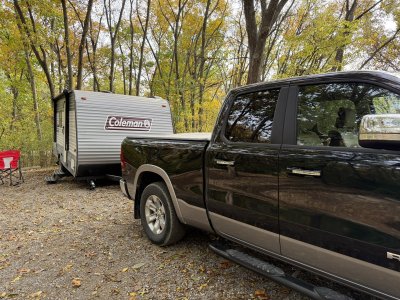This has been brought up a few times in other threads and I didn't want to side-track those discussions. The debate about hunting numbers seems to be all over the place. Some seem to think the number of hunters is about to fall off a cliff and others think hunter numbers have never been higher. There are entire national initiatives about expanding hunter recruitment and there are movements like Hunt Quietly that seem to think that declining hunter numbers is just fear mongering.
I came across the USFWS website that has all of the hunting number data that is searchable by time and location (state vs. nationally).
This is the tool. If that doesn't load, I found that through this website:
https://partnerwithapayer.org/funding-sources/ (You need to go down to Hunting License Data).
Here is a screenshot for national data overtime:
View attachment 85930
Interestingly, the raw numbers are lower than their peak in the 1980's, but not nearly as down as I would have expected. However, when you adjust for number of hunters overtime by the population of the country or state, it quickly becomes apparent that the percent of the population that are hunting is going down.
From the peak in 1982 when 16.75 million licenses were sold, around 7.2% of the population bought a hunting license. In 2024, there were 15.9 million licenses sold, with around 4.7% of the population that bought hunting licenses. I am not sure of how accurate the past data are, but if anything I would assume that it was likely underestimating the number of people that were actually hunting before the digital age. My dad describes the 70s of deer hunting in Missouri as the wild west and he makes it sound like there was a lot of questionable hunting methods going on and questions how many people actually bought licenses. Also worth mentioning, is that my dad said there were probably 5 quail hunters for every deer hunter in the 70s to early 80s in our area of Missouri.
A couple of things that would be important to point out:
* These numbers do not break down deer hunting licenses vs turkey or other game
* Some states have seen a substantial increase in number of licenses sold and others have seen substantial decrease. Georgia has seen a more than 150%
increase and Michigan a 45%
decrease from their max and mins. This could be from how licenses are reported by the state, but it might also speak to why there are wildly different answers to the question if the number of hunters is going down or not.
* Even if the number of hunters were to stay the same (whether overall or adjusted as a percent of the population), the amount of land to hunt is without question going down. I would love to find acreages of habitat that have been displaced because of human development and plot that against hunter numbers.
* Something that I have not seen written about much that I think is really important for hunter number discussions is the amount of time people are spending hunting now. I think if you asked deer hunters in the 80's and 90's, the vast majority only hunted for the opening of the main firearm season. Today, more and more people are archery hunting or using muzzleloaders in late season in addition to the main firearm season. If the license numbers were unchanged overtime but people were spending more time in the field, it would certainly seem like there were more hunters.

